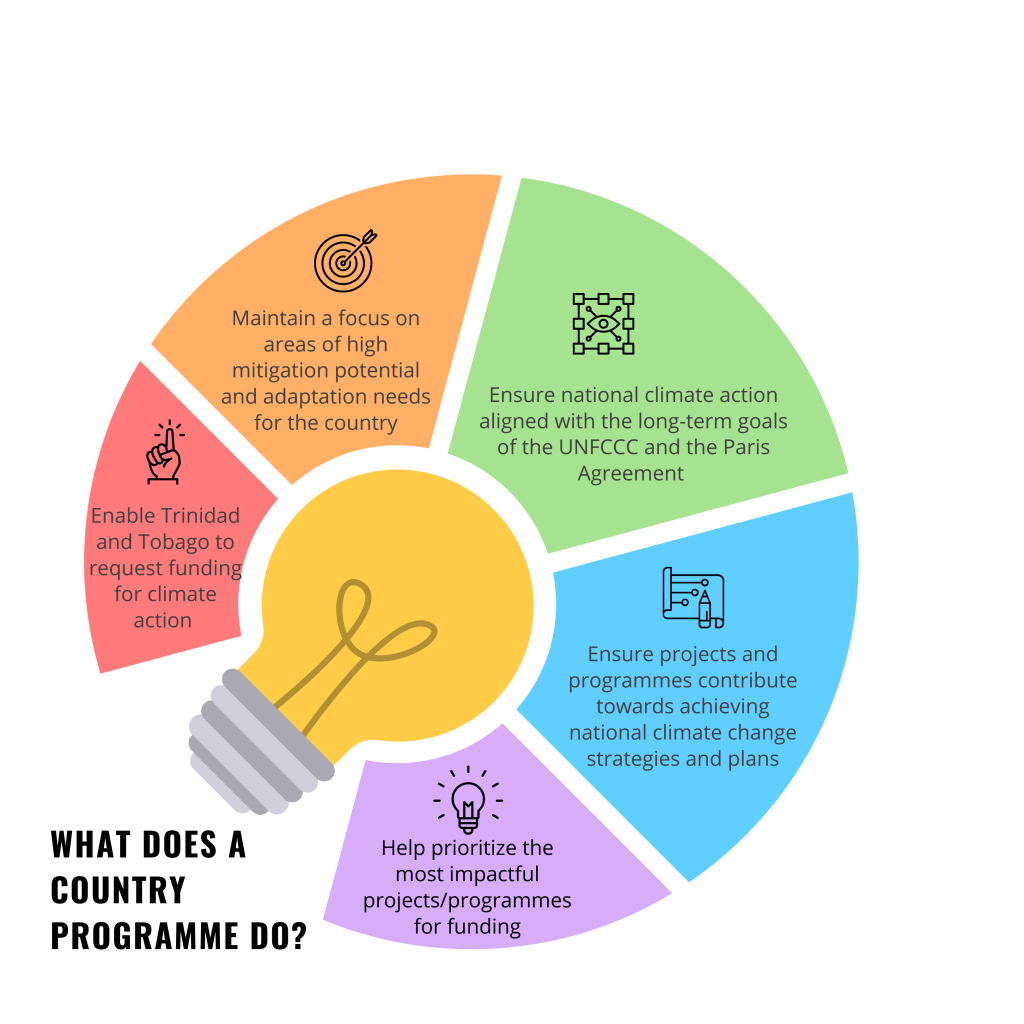GCF Country Programmes
are the cornerstone of each country’s pipeline development with GCF. It is the first stage of the updated GCF project and programme cycle, and forms the basis for prioritising the further development of funding proposals for projects and programmes submitted by Accredited Entities on behalf of countries for funding. Country Programme that provides a snapshot of the top climate-change priorities and targets based on the projects/programmes that are expected to be submitted to the GCF for funding. Country Programmes represent an essential tool at the GCF’s – and country’s – disposal to achieve transformational impact, while enhancing and ensuring country-driven approaches, cornerstones of the GCF business model. In addition to this, Country Programmes are utilised by the GCF to inform Board discussions and decisions, especially those pertaining to the future projections of funding needs of developing countries and the replenishment of the GCF funds.
The process of developing or updating a Country Programme is used for prioritising the most impactful projects or programmes to be funded by GCF, aligned with the priorities identified in a country’s national climate plans or strategies. It may also be used to identify the most suitable GCF Accredited Entities or prospective entities seeking accreditation that would submit and implement those projects and programmes. These projects and programmes should contribute to the country achieving its ambitious, long-term climate change strategies and plans, particularly those contained in the country’s latest nationally determined contributions (NDCs), adaptation communications (ACs), national adaptation plans (NAPs), Technology Needs Assessments (TNAs), Technology Plans (TPs) and long-term national strategies, focusing on areas of high mitigation potential and adaptation needs for the country. They should also be consistent with long-term planning aligned with the goals of the UNFCCC and the Paris Agreement to stabilise average global temperatures at 1.5 degrees Celsius above pre-industrial levels and increase a country’s ability to adapt to the adverse impacts of climate change.

